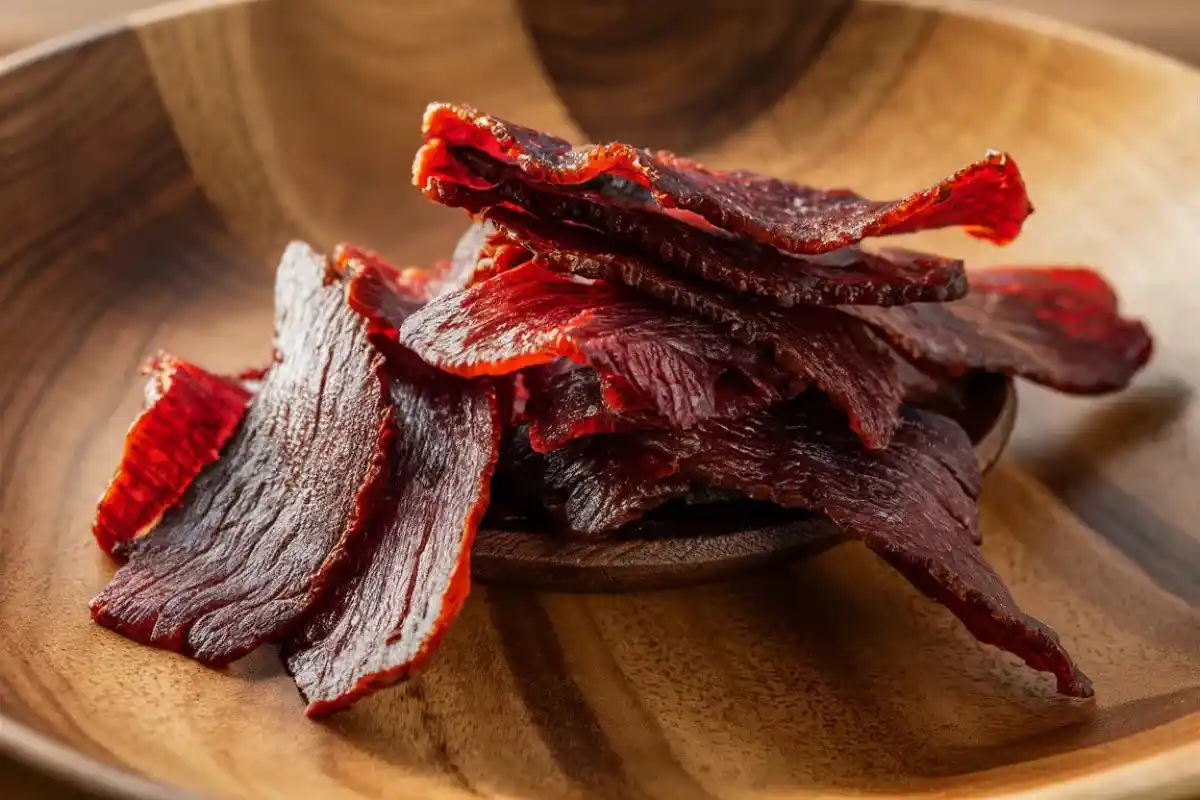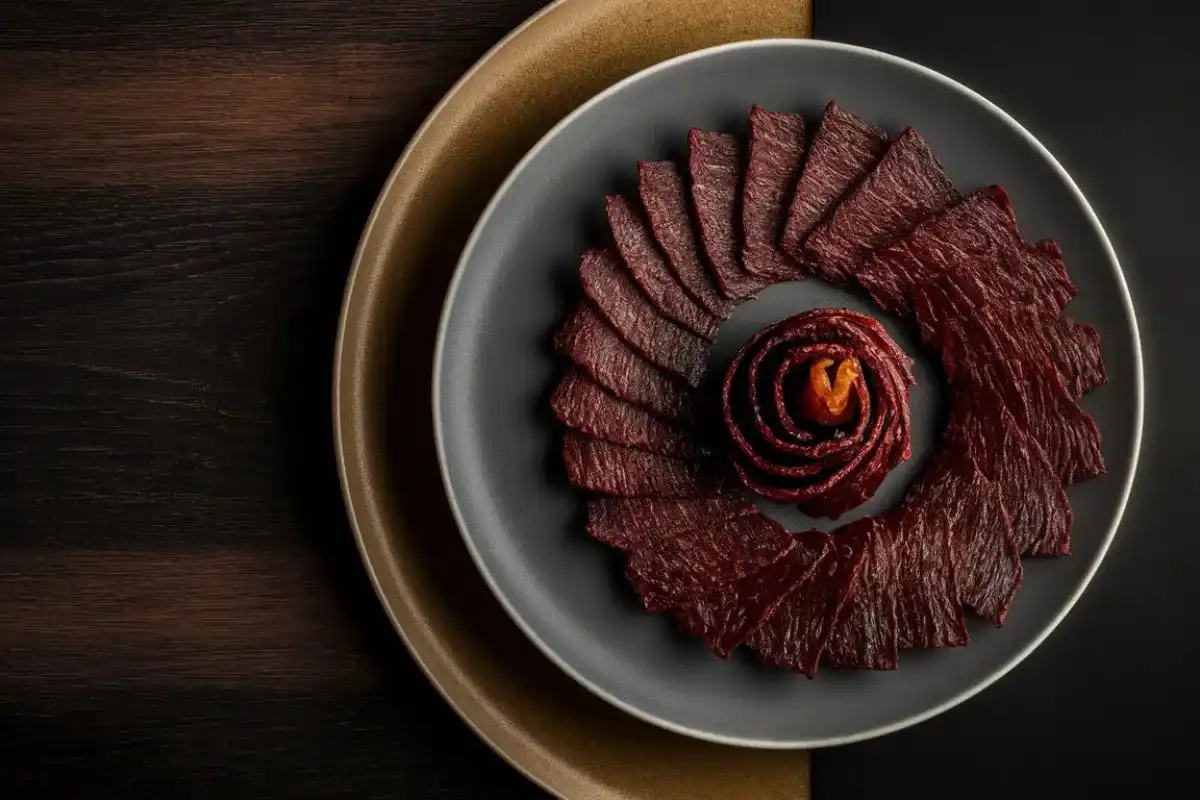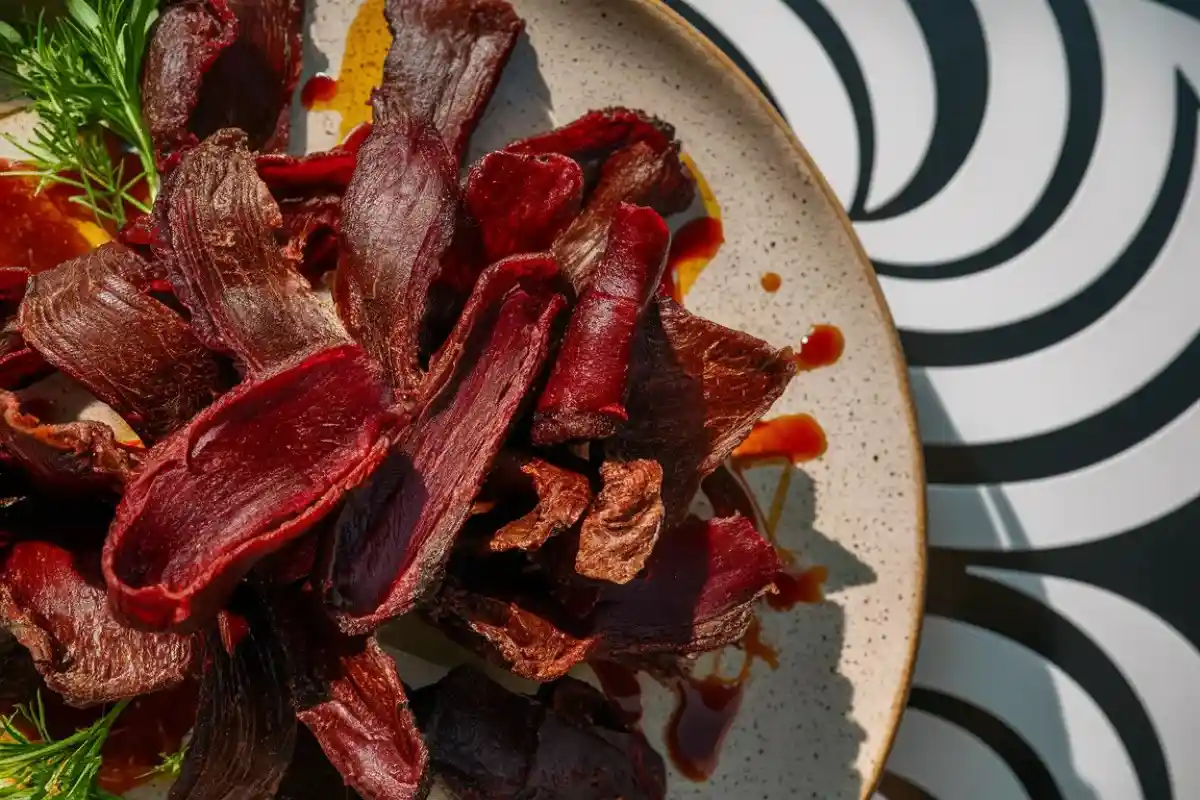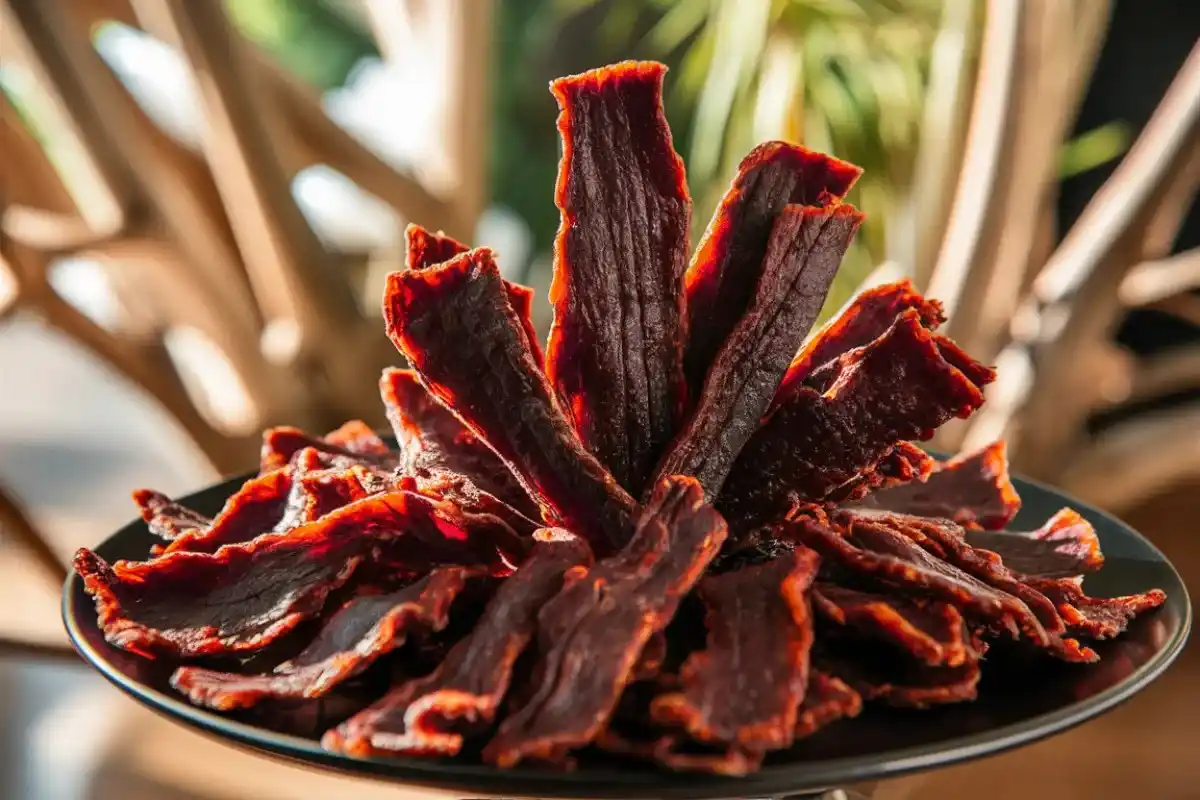Beef jerky has long been a favorite snack for those who appreciate its rich flavor, high protein content, and portability. It’s often regarded as a durable, non-perishable food option ideal for outdoor adventures, long trips, or emergency food supplies. However, many wonder: can beef jerky last 10 years? This article will explore the factors that affect the shelf life of beef jerky, delve into whether it can last a decade, and provide best practices for storing it to maximize longevity.
What is Beef Jerky and How is it Made?
Beef jerky is a type of dried meat that undergoes a process of dehydration, curing, and flavoring to create a delicious and long-lasting snack. The making of beef jerky involves selecting lean cuts of beef, which are trimmed of fat, marinated in a mixture of spices, salt, and sometimes sugar, and then slowly dried in an oven, smoker, or dehydrator. This process removes most of the moisture from the meat, which helps to inhibit the growth of bacteria and mold, key factors that contribute to its extended shelf life.
The preservation method used to make beef jerky is not new; it dates back thousands of years when indigenous people would dry strips of meat in the sun or over a low fire. This ancient technique allowed them to store food for extended periods without refrigeration. Today, modern methods like vacuum sealing, adding natural preservatives, and using controlled drying environments have enhanced the ability to keep beef jerky safe for consumption over a long time.
Factors That Affect How Long Beef Jerky Stays Fresh

Several factors determine how long beef jerky can last. Understanding these factors can help in deciding how best to store it and maintain its quality for as long as possible:
- Moisture Content: The primary reason beef jerky lasts longer than other types of meat is due to its low moisture content. Drying meat significantly reduces the water activity, which prevents bacteria and mold from thriving. Commercial beef jerky generally contains less than 10% moisture, making it more shelf-stable.
- Preservatives and Additives: Preservatives play a crucial role in extending the shelf life of beef jerky. Salt is the most common natural preservative, and it works by drawing out moisture from the meat and creating an environment that is inhospitable for bacterial growth. Other preservatives may include vinegar, citric acid, or natural antioxidants like rosemary extract. These additives help in keeping the jerky fresh for longer periods.
- Packaging Methods: Packaging significantly influences the longevity of beef jerky. Most commercial products are vacuum-sealed or packed with oxygen absorbers to prevent oxidation and moisture ingress. Oxygen exposure can lead to rancidity, especially if there is any fat left in the meat. Proper packaging reduces the exposure to air and light, which can degrade the quality over time.
- Storage Conditions: The environment where jerky is stored greatly affects its shelf life. Cool, dry, and dark places are ideal for storing beef jerky. High temperatures, direct sunlight, or humidity can accelerate spoilage. For long-term storage, refrigeration or freezing can further prolong its lifespan.
For more detailed information on preserving beef jerky, you can explore the guide on beef jerky long-term storage.
How Long Does Beef Jerky Last Unopened?
When stored properly, unopened beef jerky can last for a surprisingly long time. Here’s a breakdown of its shelf life under different storage conditions:
- Pantry Storage: When stored in a cool, dark pantry, unopened beef jerky typically lasts between 1 to 2 years. The key here is to ensure that it is stored away from direct sunlight and high temperatures, which can cause the fats to go rancid and the meat to deteriorate more quickly.
- Refrigerator Storage: Refrigerating beef jerky can significantly extend its shelf life. Unopened jerky stored in the fridge can last up to 2 years, depending on the quality of packaging and the preservatives used. The colder environment slows down any bacterial growth and prevents the fats from oxidizing.
- Freezer Storage: Freezing is the most effective way to extend the shelf life of beef jerky. Unopened jerky can last indefinitely in the freezer, especially if it is vacuum-sealed or packed with oxygen absorbers. Freezing halts the degradation process, although the texture may change slightly after thawing. It’s not uncommon for well-packaged, frozen beef jerky to remain edible for up to 2 years or more.
How Long Does Beef Jerky Last Once Opened?
The shelf life of beef jerky is reduced once the packaging is opened, as exposure to air, moisture, and contaminants can accelerate spoilage. Here’s what you can expect after opening a package of beef jerky:
- Room Temperature: If you store opened beef jerky at room temperature, it will typically last for 3 to 7 days. The key is to keep it in an airtight container or resealable bag to minimize exposure to air and moisture. However, the risk of bacterial growth increases significantly once the seal is broken.
- Refrigeration: Storing opened beef jerky in the refrigerator can extend its shelf life to 1 to 2 weeks. The cold environment slows down microbial activity, but it’s still important to keep the jerky in an airtight container or vacuum-sealed bag to prevent moisture ingress.
- Freezing: For long-term storage, freezing opened beef jerky is the best option. When stored in a freezer-safe bag or vacuum-sealed packaging, opened jerky can last for up to 6 months without significant loss of quality.
For more details on how vacuum sealing can extend the shelf life of beef jerky, check out how long beef jerky lasts when vacuum sealed.
Can Beef Jerky Last 10 Years?
While it’s theoretically possible for beef jerky to last 10 years under perfect conditions, it’s generally unlikely. Several factors must align to extend its shelf life to such an extreme:
- Vacuum Sealing and Oxygen Removal: The most crucial step in preserving beef jerky for an extended period is vacuum sealing. Removing all the air from the packaging reduces the risk of oxidation and prevents mold growth. The jerky must also be packed with oxygen absorbers, which further reduce any remaining oxygen in the package.
- Freezing at Constant Low Temperatures: Storing beef jerky in a consistently cold environment, such as a deep freezer, can dramatically increase its shelf life. Freezing halts the growth of bacteria and mold and slows down the chemical reactions that cause spoilage. For jerky to last up to 10 years, it would need to be kept in a deep freeze at a stable temperature.
- Proper Preparation and Quality Control: The jerky must be made with high-quality meat and processed in a clean environment. Lean cuts of meat with minimal fat content are preferred, as fat can become rancid over time. The curing process should be thorough, and natural preservatives such as salt and vinegar should be used generously.
Although the possibility exists, most commercially available beef jerky is not designed or marketed to last for a decade. Its shelf life is usually limited to a few years, even under ideal conditions.
How to Spot Spoiled Jerky: What to Look For

If you’re unsure whether your beef jerky is still good, look for these common signs of spoilage:
- Visual Inspection: Check for any visible signs of mold or discoloration. Fresh beef jerky should have a consistent color and texture. If you see white spots, green fuzz, or black patches, it’s a sign of mold growth.
- Texture Changes: Good beef jerky should be firm but pliable. If the jerky feels overly hard, brittle, or mushy, it may have gone bad. Any change in texture is an indicator of spoilage or deterioration.
- Smell: Fresh beef jerky should have a smoky, savory aroma. If it smells off, sour, or rancid, it is best to discard it. An unpleasant odor is a clear sign that the jerky has gone bad.
- Taste: If the jerky tastes off or sour, it is no longer safe to eat. While this is the last test you should use, trust your taste buds if it doesn’t taste right, don’t eat it.
How to Make Beef Jerky Last Longer
To maximize the shelf life of beef jerky, follow these best practices:
- Choose High-Quality Jerky: Start with high-quality beef jerky that is free from artificial preservatives and additives. Look for products that are vacuum-sealed or packed with oxygen absorbers.
- Store in a Cool, Dark Place: Keep beef jerky away from direct sunlight, heat, and humidity. A pantry or cupboard is ideal, as long as it is cool and dry.
- Use Airtight Containers or Vacuum Sealing: Once opened, store beef jerky in an airtight container or vacuum-sealed bag to keep out air and moisture. This will help maintain freshness and prevent spoilage.
- Refrigerate or Freeze for Long-Term Storage: If you plan to store beef jerky for an extended period, refrigeration or freezing is recommended. This method is especially useful if you have a large quantity of jerky or if you want to keep it for more than a few weeks.
Best Storage Practices for Maximizing Beef Jerky Shelf Life
Implementing the following storage practices can help you get the most out of your beef jerky:
- Pantry Storage: Store unopened jerky in a cool, dry place away from direct sunlight. Ensure it is kept in its original vacuum-sealed packaging until ready to eat.
- Refrigeration: For opened jerky or homemade varieties, refrigerate in an airtight container or resealable bag. This will keep it fresh for a longer period, usually up to 2 weeks.
- Freezing: For maximum longevity, freeze beef jerky in vacuum-sealed bags or freezer-safe containers. This method is particularly effective for large batches or when preparing for long-term storage.
For those who want to ensure their beef jerky lasts as long as possible, it’s essential to ask: can beef jerky last 10 years under normal storage conditions? Generally, proper storage practices, such as keeping it in a cool, dark place and vacuum-sealing, are crucial for maximizing its shelf life.
Commercial vs. Homemade Beef Jerky: Which Lasts Longer?
When it comes to shelf life, there are notable differences between commercial and homemade beef jerky:
- Commercial Beef Jerky: Typically, commercial jerky is produced using precise drying methods, preservatives, and vacuum-sealed packaging. This controlled process allows for a longer shelf life, often ranging from 1 to 2 years. Some products may even last longer if they are stored in ideal conditions.
- Homemade Beef Jerky: Homemade jerky, while delicious and customizable, generally has a shorter shelf life. The reason is that it often lacks the preservatives found in commercial versions, and home dehydrators may not achieve the same level of moisture removal. If not stored properly, homemade jerky may only last a few weeks to a few months.
To learn more about how to preserve beef jerky at home, visit how to store beef jerky long term.
Sustainability and Beef Jerky: A Long Shelf Life Benefit

Beef jerky offers several benefits beyond just being a tasty snack. Its long shelf life makes it an excellent choice for emergency preparedness kits, survival situations, and outdoor activities. It is also a sustainable option because it reduces food waste by using cuts of meat that might otherwise be discarded. Properly stored, beef jerky remains a nutrient-dense food that can provide essential proteins and calories when needed most. Beef jerky can be an excellent addition to high-protein diets, especially for those looking to maintain muscle mass
Frequently Asked Questions
1. Can Beef Jerky Last 10 Years?
One of the most frequently asked questions is, “can beef jerky last 10 years?” While most jerky is not intended for such a long shelf life, following proper storage practices and using quality ingredients can make a significant difference.
2. Is it safe to eat beef jerky past the expiration date?
This depends on the storage conditions and how long it has been past the expiration date. If it shows no signs of spoilage, it may still be safe, but caution is always recommended.
3. How long does vacuum-sealed beef jerky last?
Vacuum-sealed jerky can last up to 2 years when stored properly in a cool, dry place.
4. Why does beef jerky have white spots or discoloration?
White spots could be due to crystallized fat or mold. If mold is present, discard the jerky immediately.
5. What’s the difference between beef jerky and beef sticks in terms of shelf life?
Beef sticks, which generally contain more moisture and fat, have a shorter shelf life compared to beef jerky.
Conclusion
While it is improbable that beef jerky will last 10 years under typical storage conditions, following best practices such as vacuum sealing, refrigeration, and freezing can significantly extend its shelf life. For most people, storing beef jerky for up to 2 years is a more realistic goal. To maximize its longevity, it is essential to store it in the right environment, using the appropriate methods.
By understanding the factors that affect the shelf life of beef jerky and employing the best storage practices, you can enjoy this delicious snack for as long as possible. For more tips on storing beef jerky, visit how to store beef jerky long term.

